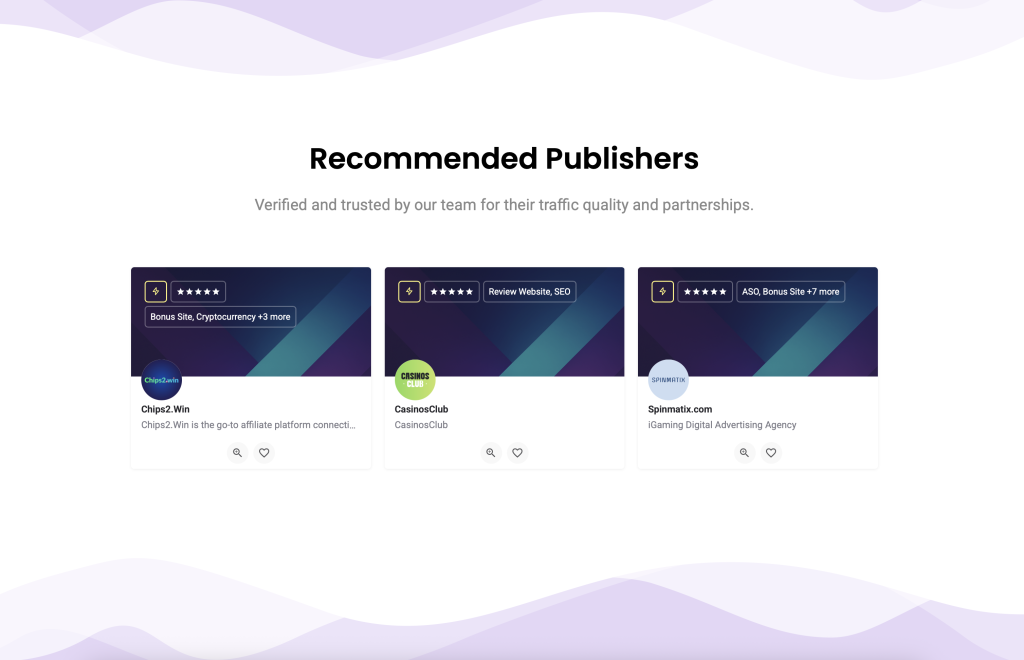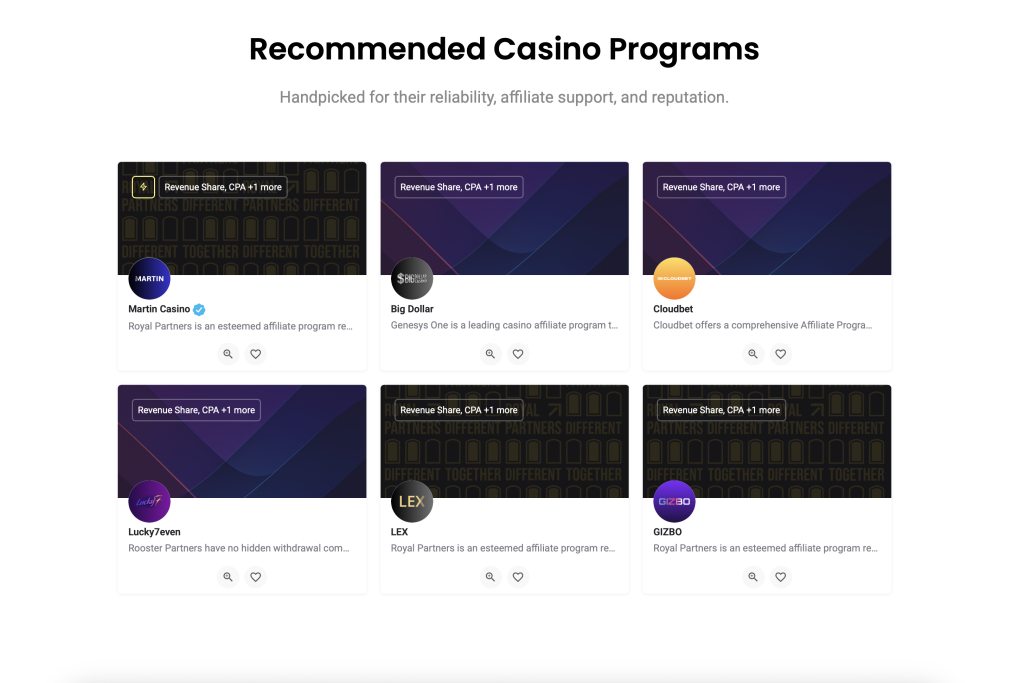-
JoinedJuly 24, 2024
-
Active listings86
- Direct message
Avante Network
iGaming Affiliate
Full Service
Gambros777
Streamer
Streamer
ADTRIX
iGaming Affiliate
Full Service
Maven Agency
iGaming Affiliate
Full Service
Mailer Media
iGaming Affiliate
Full Service
Casino.com
iGaming Affiliate
Bonus Site
Casino Insane
iGaming Affiliate
Bonus Site
Crypto Azteca
iGaming Affiliate
Bonus Site


